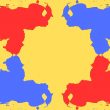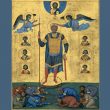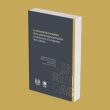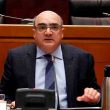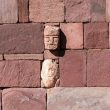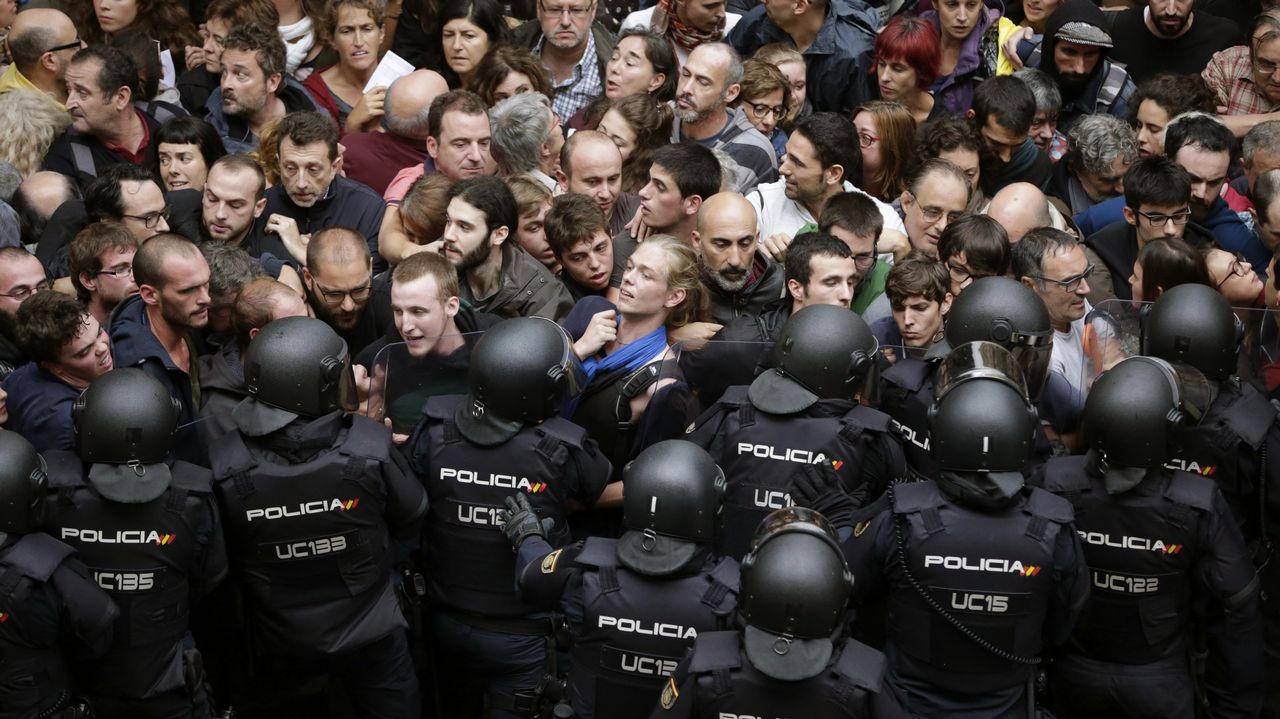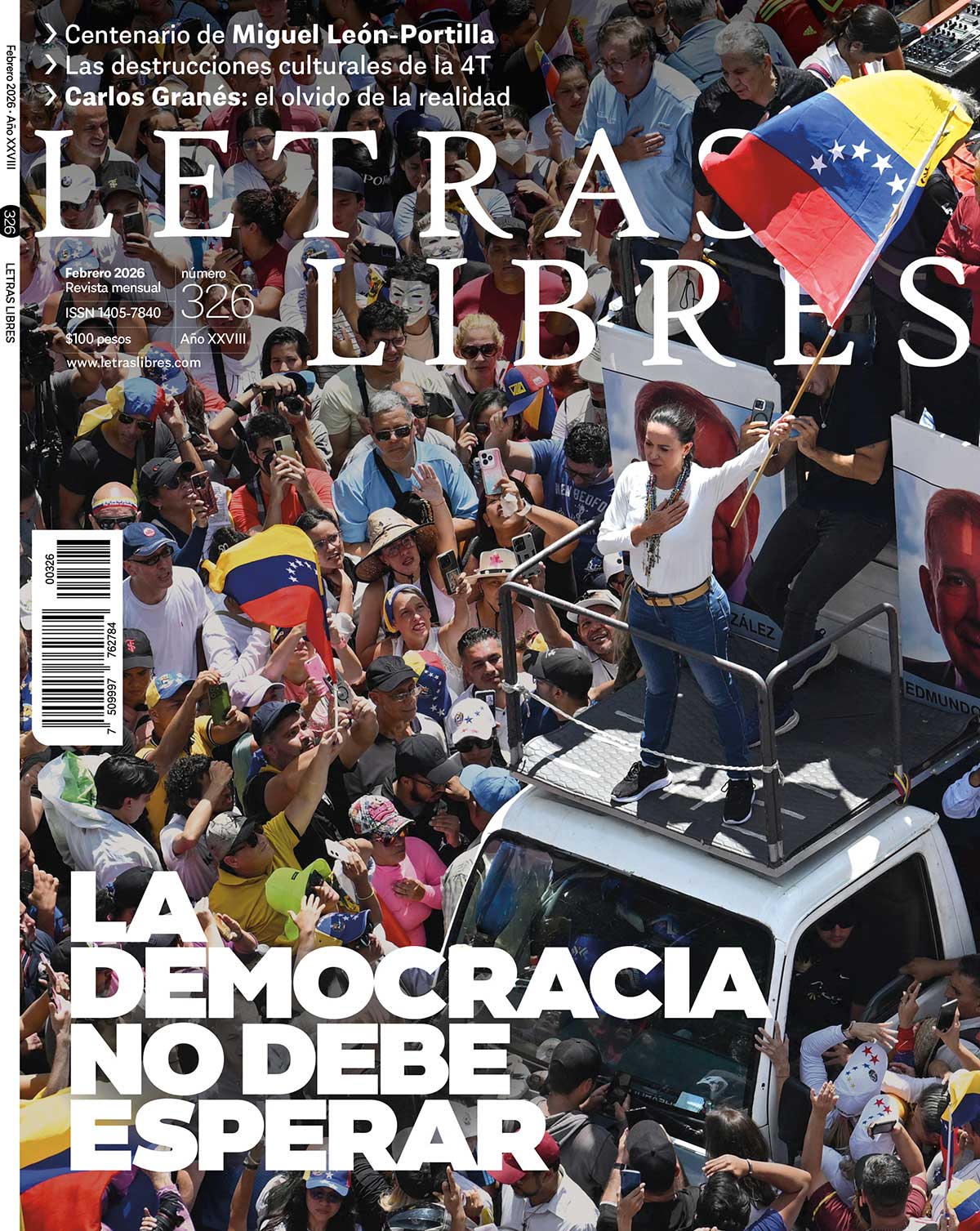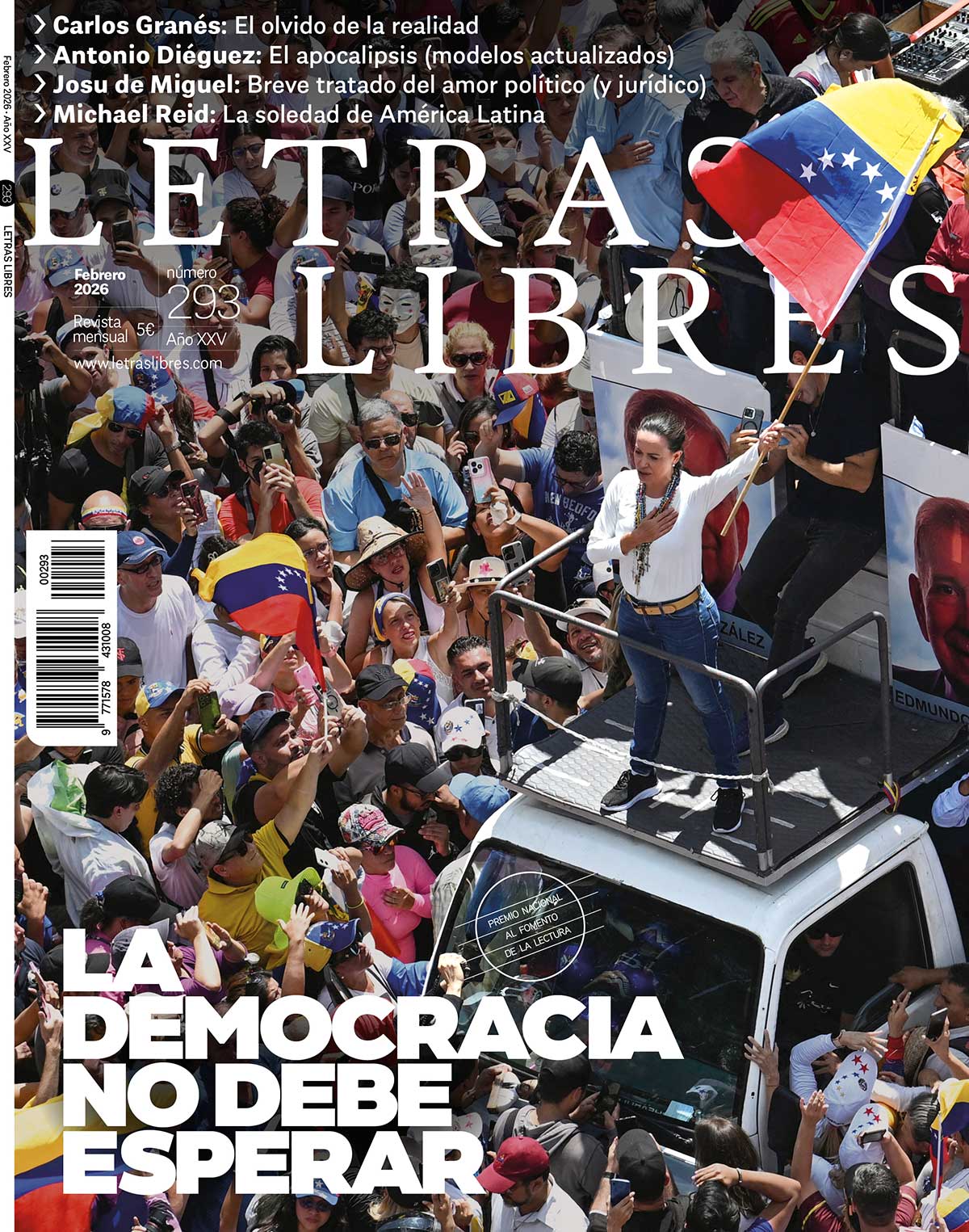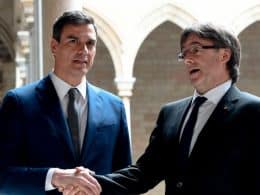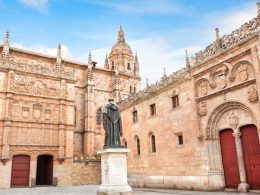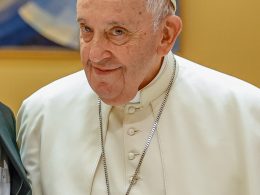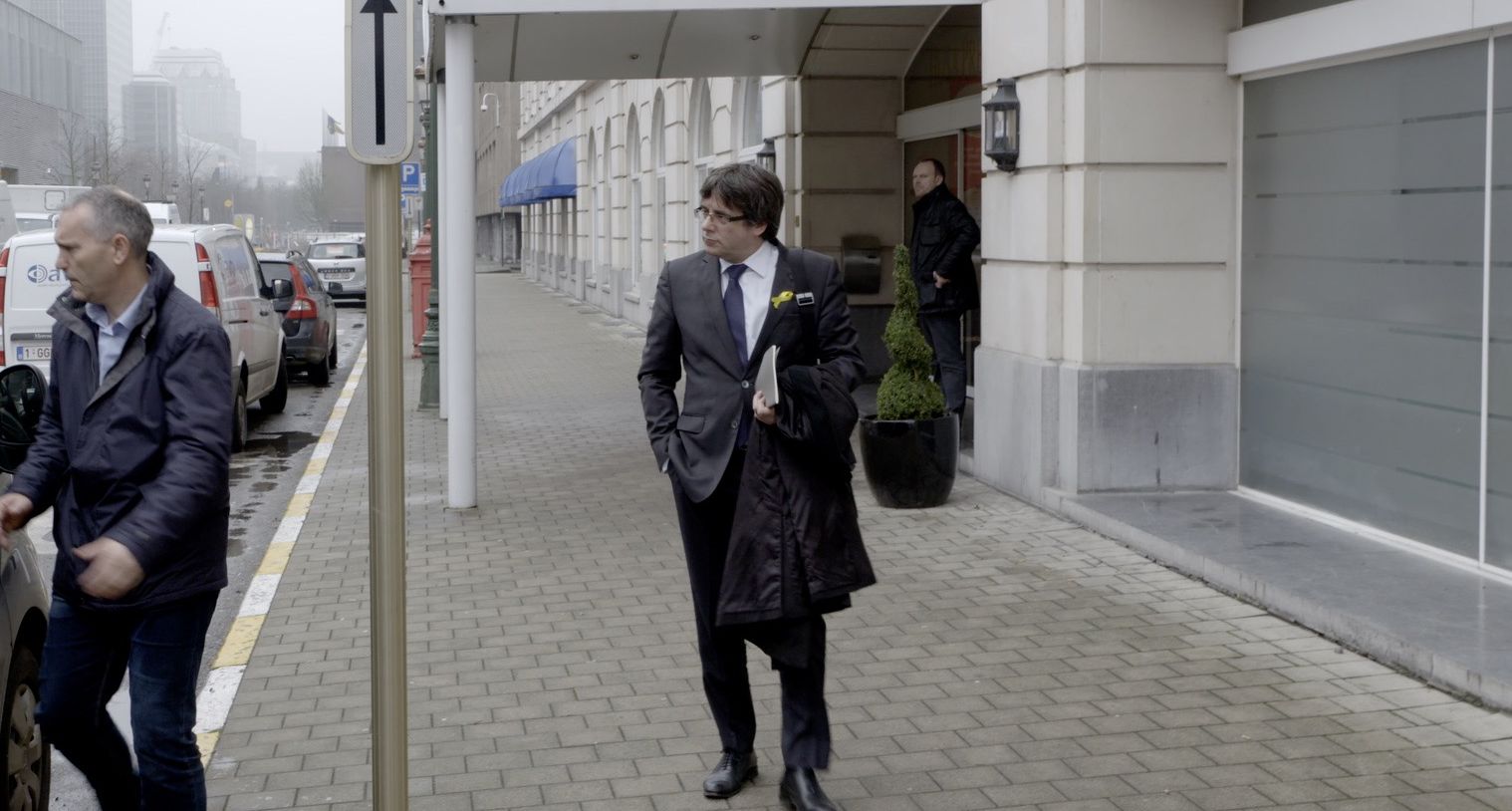The passivity of the Spanish government and its bad communication strategy against the much more professional, effective and bold secessionist propaganda has been criticized for weeks. There is also, as Antonio Muñoz Molina argued a few days ago in an article titled En Francoland, a reluctance from a part of the cultured public opinion, in Europe and America, and mostly amongst academia and journalism, to let go of the dark view of Spain -they stick lazily to stereotypes and especially to the heritage of the Francoist dictatorship. The anglosphere is particularly attached to this view, mainly taken from Latin America. Jon Lee Anderson is an example of this. Muñoz Molina referred to him in his article: “Even the reputed Jon Lee Anderson, who lives or has lived among us, lies deliberately, unscrupulously, aware that he is lying and of the consequences, when he writes in The New Yorker that the Guardia Civil is a paramilitary force”. Anderson disqualified Muñoz Molina: he says he is as much a troll as Trump. Yet his article “The increasingly tense standoff over Catalonia’s independence referendum” shows manipulations and lies that distort 1-O. Below are my comments on his article and his distorted version of reality.
“Voting rights have been under siege in the U.S. in recent years […] But no citizens here or in any democracy expect that they may be attacked by the police if they try to vote. Yet that is what happened on Sunday in the Spanish region of Catalonia,
[The opening of an article is key and this is Anderson’s invitation to create a mental frame with which we deal with the issue: if the American reader believes what he says about the degradation of voting rights in the USA, in Spain it’s even worse because the police could attack everyone willing to vote. When he writes “No citizens here or in any democracy” he questions that the Spanish democracy is comparable to others. He fails to mention, of course, that the referendum was against the law]
where thousands of members of the Guardia Civil paramilitary force, and riot police, were deployed by the central government in Madrid
[Muñoz Molina pointed to this detail. Athough the word paramilitay has more nuances in English than in Spanish, the Guardia Civil is defined as an armed institution with military character and security functions. Anderson could have simply checked Wikipedia. But naturally the word “paramilitary” was more suggestive.]
to prevent the Catalans from holding an “illegal” referendum on independence from Spain.
[It’s interesting how he places “illegal” between quotation marks. Anderson, in his story, believes numerous facts but he does not accept that the illegality is a fact, and that’s why he uses the quotation marks, to turn it into an opinion. Ultimately, he disdains the authority of the Constitutional Court of an European state, which unanimously declared the referendum law approved by the Catalan parliament unconstitutional]
Masked and helmeted police used pepper spray and knocked people to the ground, kicking and beating some, and dragging others by their hair. Social-media sites quickly filled with images of bloodied and battered voters. Whatever the avowed legality of the action, it was not only a shocking display of official violence employed against mostly peaceful and unarmed civilians but an extraordinary expression of cognitive dissonance: Since when did European governments prevent their citizens from voting?
[After creating a scenario of horror, also without mentioning that many of those, he says something untrue: the Government stops people from voting in Catalonia. Actually, Catalans have voted forty times since the Transition. What the Spanish government stopped was an illegal referendum. This means that a Government acts following the law, and uses force, probably questionable in terms of intensity and opportunity, but within the duties of any democratic state]
In a way, Sunday’s events were a chronicle of a disaster foretold. Secessionist sentiments have been building for some time in Catalonia, an ancient principality, then part of the Crown of Aragon, that was annexed by the Bourbon kings in the War of Spanish Succession, and which has since held on-and-off-again autonomy.
[Ah, 1714, the myth. Either Anderson doesn’t know the facts or he falsifies them. He uses the medieval term “principalty”, that ceased to be used in the first half of the 19th century, and creates a false imaginary in which Catalonia was an independent territory that was annexed. On this topic I recommend the book Historia mínima de Cataluña (Turner, 2015) by Jordi Canal, who teaches at the École des Hautes Études en Sciences Sociales (EHESS) in Paris, to understand that “Catalonia has never been a nation”.]
Under General Francisco Franco, who ran Spain as a Fascist dictatorship from 1939 until 1975, Catalonia’s autonomy was suppressed, and the Catalan language was outlawed.
[From 1714 to Franco. Anderson, following the secessionist’s propaganda, reduces the history to two moments: 1714 and Franco]
(The region was also the site of one of the last stands of the Republic in Spain’s brutal civil war, and Catalans paid a heavy price for their resistance: thousands were imprisoned and executed after Franco’s forces defeated the Republicans.)
[Anderson should read more to better understand the Spanish Civil War -there is no doubt it was a brutal conflict. Catalonia, where the republican repression was also very hard, was no exception. Anyway, there were different loyalists sides and there were also francoists. All Spaniards paid a heavy price.]
In the past few years the idea of independent nationhood has captivated a large number of its people. The nationalist mood has been exacerbated by dissatisfaction with Catalonia’s share of the national budget: a region with a population of seven and a half million people, and Barcelona as its capital, Catalonia is Spain’s economic powerhouse, producing about a fifth of the country’s G.D.P. and paying a significant amount of tax.
[The normal confusion: regions don’t pay taxes, citizens do. And there’s also the principle of wealth redistribution. Catalonia has always argued for a privileged fiscal treatment, but the nationalists have always exaggerated and falsified the argument, as Josep Borrell and Joan Llorach exposed in Las cuentas y los cuentos de la independencia (Catarata, 2015)]
The decision, in 2010, by Spain’s constitutional court to deprive Catalonia of its previously granted designation as a “nation” within the constitutional monarchy was, for many Catalans, the turning point
[The Constitutional Court didn’t modify the term “nation” in the Estatut, because it considered it didn’t have a legal character. Only about a dozen articles of the law were modified]
The Spanish Prime Minister, Mariano Rajoy, a veteran of the Partido Popular, a party founded by Franco’s political disciples
[The insistence on Franco, the imaginary of Francoland. Certainly Alianza Popular could have been labeled that way, but not the Partido Popular, a refoundation from 1989, whose purpose was to become a moderate and modern alternative. Decades later, to continue the comparison between the PP and Franco is unfair, but it’s Anderson’s strategy]
who was elected in 2011, has repeatedly called the independence campaign “illegal,” “unconstitutional,” and even an attempted “coup d’état.” His primary Catalan nemesis is Carles Puigdemont, a former journalist who became the regional President last year and has long been an adherent of independence; he recently said that there is “nothing” that the Spanish state can do to deter him from the campaign—including putting him in prison.
[Anderson insists that the ones who deemed the referendum illegal or unconstitutional were Franco’s disciples, instead of referring to the Constitutional Court from a democratic state. And he portrays the main characters: the “leader of the party created by Franco’s political disciples” vs “the tenacious and brave patriot” Puigdemont.]
In a previous, nonbinding referendum on independence, held in 2014, 2.3 million Catalans voted, and an estimated ninety-two per cent supported the idea. But with only a minority of the population participating, the result was inconclusive. Undeterred, the Catalan parliament approved a plan for secession, by a narrow majority, the following year. Spain’s constitutional court ruled against it, but Catalonia’s government, now committed to independence, declared its determination to proceed.
[Anderson doesn’t mention either that the promoters of the vote, that he presents as a referendum, were condemned by the Superior Court of Justice of Catalonia. And he also avoids mentioning that the plebiscitary plan didn’t get 50% of the vote. He doesn’t mention the irregularities in the process of passing the Referendum Law, on September 6th and 7th, where the law was completely broken. Enric Juliana, in La Vanguardia, wrote: “To pass a law that cancels the Estatut and that opens the door for a unilateral break with a member State of the European Union without any parliamentary debate is not precisely a tribute to liberal democracy”]
And proceed it did, on Sunday. Voters were asked a single question: “Do you want Catalonia to become an independent state in the form of a republic?” According to Catalan authorities, in spite of the police intervention, the confiscation of ballot boxes, and the closure of some polling centers beforehand, more than two million Catalans voted, and an estimated ninety per cent—but just forty-two per cent of the electorate—answered yes.
[Once again, Anderson blurs the rule of law to present this as a fight between the pressure of the state’s force and democratic determination]
On Sunday night, Rajoy spoke on national television and, in an address of vintage Iberian obtuseness, lauded the events of the day.
[That’s nice: in front of the Catalonia of liberty, there is always a place for the insidious disqualification of España or Castilla or the Iberian obtuseness]
He celebrated the fact that Spain’s “rule of law” had prevailed, and thanked the security forces for their actions. He described the referendum as having represented a “serious attack” on Spain’s democracy that had to be stopped. The phrase he actually used was “one could not look away.”
[Again the quotation marks, here for “rule of law”. He treats Spain as a democracy under suspicion]
Rajoy did not mention the people who had been injured—there were nearly nine hundred, including two who were seriously hurt, a man who lost an eye to a rubber bullet, and a number of women who accused policemen of having sexually molested them. (About a dozen police officers were injured.)
[Anderson, so jealously reluctant to accept other facts, accepts the official figures given by the Generalitat; the figures are hardly credible. The ex editor of The Guardian Peter Preston said they were fake news. A judge said the real figures were much lower. Instead, Anderson doesn’t even shows the official figures of injured security forces. He acts like a propagandist]
While there was a generally shocked public reaction to the violence, many non-Catalan Spaniards have either defended the police action as legal, following Rajoy’s justifications, or else lamented the police “clumsiness,” but blamed the Catalans for bringing the situation about in the first place. Amnesty International, meanwhile, has lambasted Rajoy’s government for having used “excessive and disproportionate” force. There has been an unusually muted response from the other countries in the European Union, where authorities are worried, in the age of Brexit, about any further fragmentation taking place, and have warned Catalonia’s leaders that, if they chose to secede from Spain, they would not be accepted into the E.U.
[Anderson suggests that the EU only worries about the extension of the fire, without evaluating the possibility that it’s an understandable position in front of a regional government that is threatening the constitutional order of a member State]
Employing consummate diplomatese, the President of the E.U., Donald Tusk, said that he had spoken with Rajoy and that, while he “shared his constitutional arguments, I appealed to him to find ways to avoid escalations and use of force.”
[Oddly, Anderson’s suggests that Tusk’s message was merely diplomacy, because it was about denouncing violence]
Clearly interpreting Rajoy’s heavy-handedness as a boon to the independence movement, Puigdemont said, “On this day of hope and suffering, Catalonia’s citizens have earned the right to an independent state in the form of a republic.” On Tuesday, the trade unions called a general strike across Catalonia, which was joined by university students and the world-renowned Barcelona football club. In an op-ed published in theGuardian, the political scientist Víctor Lapuente Giné wrote that “Rajoy’s move could not have been more counterproductive. The political-bureaucratic elite that controls the ruling conservative Partido Popular . . . has failed to understand that a modern state depends not on the monopoly of violence, but on the monopoly of legitimacy.” Giné added a gloomy prediction: “It’s unlikely that Catalan separatism will propel similar secessionist challenges. No other separatist movement, apart from that of Scotland, has the popular and organisational support. Yet it’s likely that Spain’s internal turmoil will escalate, triggering an international crisis by forcing major diplomatic players to take sides. We are far from the incendiary secessionist tensions of former communist countries, from the Balkans to Ukraine. But we are moving in that direction.” In an interview with me on Wednesday afternoon, Raül Romeva, the Catalan foreign minister, seemed to confirm that outlook. “After many years of peaceful demonstrations and requests from many people to seek a resolution to the Catalan issues,” he said, “we finally went to a referendum to decide things, only to be confronted with violence. Since Sunday, many Catalans feel as if they have been expelled from the Spanish state, which no longer represents the interests of all its citizens.”
[Anderson shows here his only source: Romeva, who he elevates to “minister of foreign affairs”.]
On Tuesday night, King Felipe VI made a rare televised address to the nation, in which he criticized the Catalan authorities for having shown what he called an “inadmissible disloyalty to the state” by pushing an agenda that had “fractured the nation” and “divided the Catalan people.” History suddenly seems alive again in Spain, and it is perhaps worth remembering that it was Catalonia’s support for a Habsburg king that brought about its loss of independence, during the War of Succession, in which the Bourbons—Felipe’s forebears—became Spain’s monarchs.
[The words of the head of state, which are a very accurate description, are discredited with a dishonest analogy by evoking the events of 1714, once again, and again with false facts like the loss of independence. Every detail confirms the frame of “oppressed land since the annexation of 1714”]
Within hours of the King’s speech, Puigdemont gave an interview in which he said that Catalans had earned the right to their independence and that their government would issue a “unilateral declaration of independence” within days. But late Wednesday he addressed the Catalans in a speech that felt more conciliatory than confrontational, calling for “negotiation” and “dialogue,” exactly what has been lacking in the dispute so far.
[Final note: despite all this, in the obtuse Spain there’s a sponsor of dialogue and that is Carles Puigdemont, the reasonable patriot. This is how, sometimes, History is written]
Traducción de Ricardo Dudda y Daniel Gascón.
Teodoro León Gross es profesor de la Universidad de Málaga y columnista en El País.


